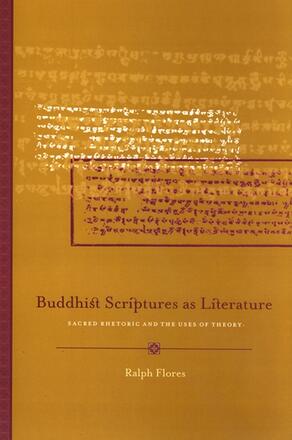
Buddhist Scriptures as Literature
Sacred Rhetoric and the Uses of Theory
Alternative formats available from:
Looks at a variety of Buddhist sacred writings as literature and includes insights from literary theory.
Description
Buddhist Scriptures as Literature explores the drama, lyricism, and compelling storylines in Buddhist sacred writings, while illustrating how rhetoric and ideology are at work in shaping readers' reactions. Ralph Flores argues that the Buddha's life story itself follows an archetypal quest-romance pattern: regal surroundings are abandoned and the ensuing feats are heroic. The story can be read as an epic, but it also has a comic plot: confusions and trials until the Prince becomes utterly selfless, having found his true element—nirvana. Making use of contemporary literary theory, Flores offers new readings of texts such as the Nikāyas, the Dhammapada, the Heart Sutra, Zen koans, Shantideva's Way of the Bodhisattva, and the Tibetan Book of the Dead. Understanding these works as literature deepens our sense of the unfolding of their teachings, of their exuberant histories, and of their relevance for contemporary life.
Ralph Flores teaches literature at Thammasat University in Thailand and is the author of A Study of Allegory in Its Historical Context and Relationship to Contemporary Theory.
Reviews
"…a fascinating look at Buddhist literature in general … [Flores] explores the drama, lyricism and storylines in Buddhist sacred literature while illustrating how rhetoric and ideology are at work in shaping the reader's reactions … an interesting and thought-provoking book. " — Journal of the Buddhist Society
"This book brings Buddhist texts up to the level of literature, as cultural texts worth reading for their own rhetorical qualities beyond their religious message. " — Francisca Cho, author of Everything Yearned For: Manhae's Poems of Love and Longing